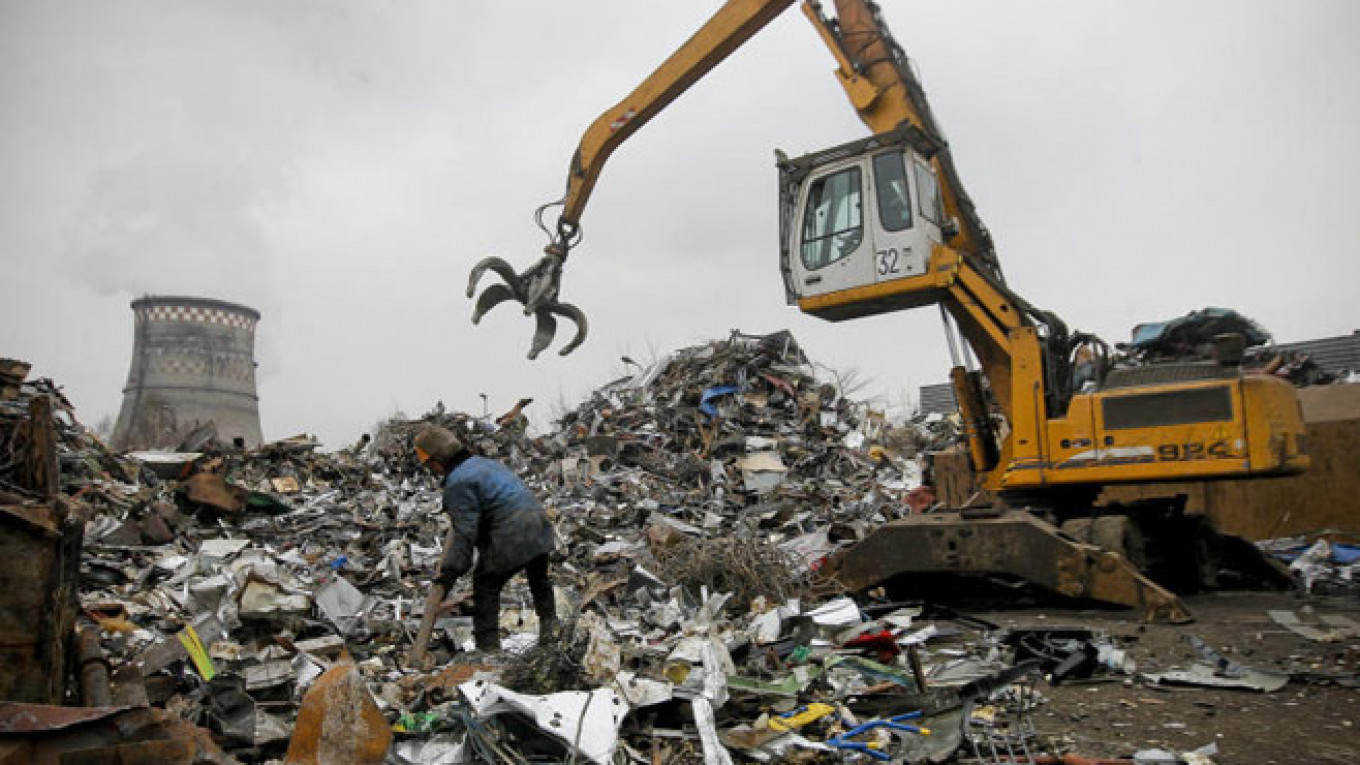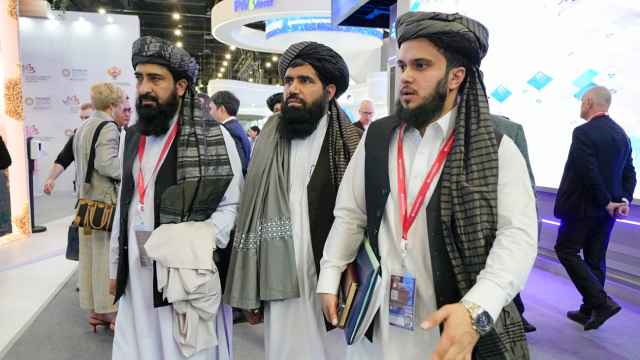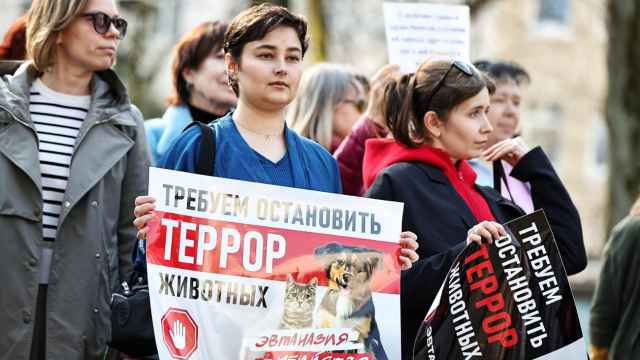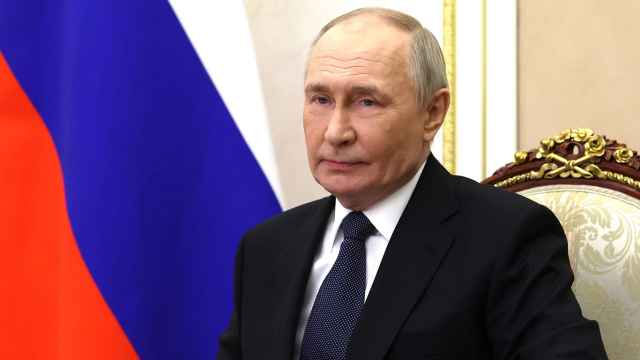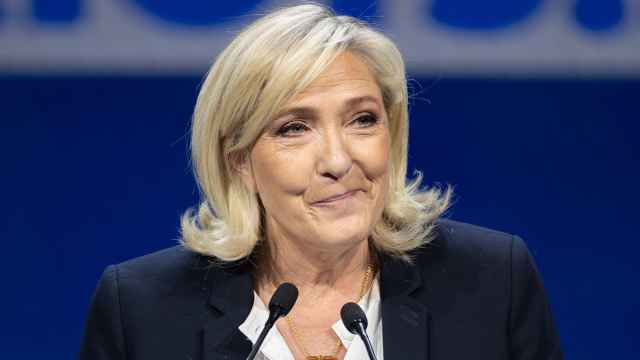Despite a nearly $2 billion state recycling initiative and burgeoning environmental movement, the vast majority of waste produced by Moscow's 12 million residents still goes straight to overfilling landfills outside of the city.
Only 4 to 5 percent of all domestic waste in Moscow is now recycled, according to data from environmental group Greenpeace Russia, the Russian division of international NGO Greenpeace.
This is the same percentage as in 2012, according to Greenpeace — despite an experimental recycling project launched by Moscow City Hall that year that has swallowed up 95 billion rubles ($1.7 billion) in state investment.
In a recent report, Greenpeace concluded that the city's experiment had failed to contribute to the development of waste recycling in Moscow. City Hall did not respond to repeated requests for comment from The Moscow Times.
The experiment did not fail because Muscovites were unwilling to participate, but rather because the state failed to offer effective waste management schemes, said Alexander Tsygankov, a project coordinator at Greenpeace Russia.
Overflowing Landfills
Developing an effective recycling program in Moscow is not only a matter of ecological concern but a logistical necessity.
"There is simply nowhere for the trash to go. The nearest illegal dump is [just] 15 kilometers away from the Kremlin — this is outrageous," Tsygankov said.
Every year, residents of Moscow and the Moscow region dispose of 11 million tons of domestic garbage, which accounts for one-fifth of all waste produced in Russia, according to data from Greenpeace.
There are three waste incineration plants in the city, each of which burn an average of 700,000 tons of garbage per year. All the rest — or 80 percent of Moscow's garbage — accumulates in landfills outside the city, according to Greenpeace.
After decades of use, these landfills are now filled to the brim. Ninety percent of the 40 dumps in the Moscow region are filled beyond capacity and on the brink of closure, said Valeria Korostelyova, head of the Moscow-based environmental group Razdelny Sbor.
State Steps In
As Moscow's trash problem escalates, the city government has recognized the need for better waste management.
In 2012, City Hall launched an experimental program dedicated to developing separate collection of trash and recyclables in the Russian capital.
Companies were selected via a tender to perform waste management in the city's nine districts, with the total amount of the 15-year contracts exceeding 95 billion rubles ($1.7 billion), according to Greenpeace estimates.
Under the terms of the contracts, recyclable materials are to be collected at stationary and mobile collection stations. By the end of last year, 134 collection stations for recycling and 3,500 receptacles for glass were supposed to have been set up in five Moscow districts, the report said.
But an inspection conducted in May by Greenpeace members and volunteers revealed a series of major violations. Of the 141 collection stations checked by Greenpeace, 32 didn't exist at all and 23 didn't operate during the hours they were supposed to, according to the report.
"In the Southeastern district with its 850,000 residents, there is only one truck to serve 250,000 people, which spends an hour and a half in each courtyard," Tsygankov said.
To make matters worse, the program received essentially no publicity. The only source of information on the experiment were the waste management companies' websites, the report said.
Official information indicates that the companies collected 284 million tons of recyclable materials last year, or 16.3 percent of the annual waste generated in the five districts where the experiment is under way.
However, Greenpeace considers this stated amount impossibly large given the number of collection stations.
The validity of this number is also questioned by Vladimir Kuznetsov, head of the Center for Environmental Initiatives, an organization that unites companies and businessmen involved in the waste management industry. Kuznetsov is responsible for installing and operating waste collection points for the company EcoLine, which won the state tender to provide collection and recycling services in the northern and central districts of Moscow.
According to Kuznetsov, the city's program has failed because although the state contracts oblige companies to reduce the amount of garbage they dispose of, they do not specify how to do so, and waste disposal companies are ill-prepared to adopt a new system.
Separating trash from recyclables "is not only about utilizing rubbish, it involves working with people and promoting the idea of recycling," Kuznetsov said.
Environmental activists told The Moscow Times that so far the program only runs successfully in the Northern district, overseen by Kuznetsov, where the collection centers operate effectively and disseminate information about cycling.
Growing Awareness
But while the city program may not have achieved much yet, concerned citizens are taking matters into their own hands.
An awareness of the need for recycling is growing in Russian society, representatives of Russian environmental groups agreed.
The number of participants in recycling initiatives has skyrocketed over the past five years, said Korostelyova of Razdelny Sbor.
Organizations, too, are beginning to think about waste management, she said. Korostelyova's group, for instance, began offering to come perform waste collection and sorting at musical festivals and other events in 2011.
"Now, they come to us," Korostelyova said.
Environmental groups conduct garbage collection and recycling every weekend across Moscow, usually collecting about 9 tons of recyclable material a month, said Yulia Burdo, an environmental activist who is a program coordinator at the national environmental organization Sdelayem! ("Let's do it!").
On the city scale, these initiatives' contribution is just a drop in the bucket, Burdo said — but they help to create a culture of environmental concern that activists hope will one day push the city to genuine reform.
Contact the author at bizreporter@imedia.ru
A Message from The Moscow Times:
Dear readers,
We are facing unprecedented challenges. Russia's Prosecutor General's Office has designated The Moscow Times as an "undesirable" organization, criminalizing our work and putting our staff at risk of prosecution. This follows our earlier unjust labeling as a "foreign agent."
These actions are direct attempts to silence independent journalism in Russia. The authorities claim our work "discredits the decisions of the Russian leadership." We see things differently: we strive to provide accurate, unbiased reporting on Russia.
We, the journalists of The Moscow Times, refuse to be silenced. But to continue our work, we need your help.
Your support, no matter how small, makes a world of difference. If you can, please support us monthly starting from just $2. It's quick to set up, and every contribution makes a significant impact.
By supporting The Moscow Times, you're defending open, independent journalism in the face of repression. Thank you for standing with us.
Remind me later.


